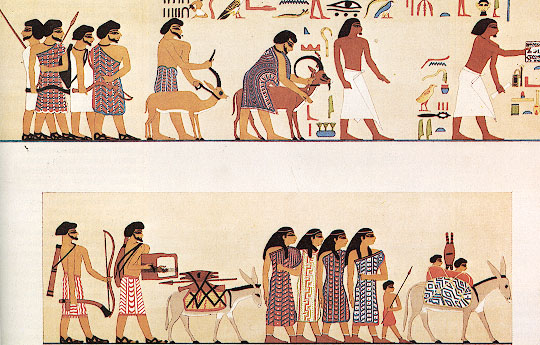Passover has always been one of, if not my absolute favorite, of the Jewish holidays.
The holiday celebrates the liberation of the Jewish people from slavery in Egypt over 3,000 years ago.
The week long holiday is celebrated with the ritual feast known as Passover seder.
As a child, I could have cared less about slavery or freedom or Jews in Egypt. Seder was about hamming up silly songs and drinking sugary wine, and basically making fun of the whole ritual.
A Passover seder is usually a lengthy ceremony during which you go through the history of the Jews’ enslavement and eventual liberation from slavery under the Pharaoh in Egypt.
You can’t eat until you get through the ceremony, though there is a lot of Manischewitz that gets consumed during the service.
The real highlight of the ceremony for me was always the plagues.
The story of Passover is that in order to punish the Pharaoh for enslaving the Jewish people, God sent down 10 plagues on the Egyptian people.
During the seder, we would dip our little finger in our glass of Manischewitz and place a little drop on our dinner plate to mark each plague. Frogs! Dip your finger. Place a little drop of blood like wine on your white plate. Lice! Another drop! Locusts! Pestilence! What fun!
Any deep meaning or significance to the Passover story was totally overshadowed for me because I mocked the archaic ritual.
I felt no connection to the people in the stories. I was born free, in America. I am only half-Jewish (with a Protestant-born atheist for a father). To tell the truth, I don’t even really know what a pharaoh is.
About 10 years ago, in a search for something that would feel more meaningful to us, my mom and I found a Jewish secular humanist service. The service promised more ethics and less fossilized ritual. The rabbi started the service with something along the lines of
“We are here to remember that the struggle for human freedom never ends.”
I’m sure there was reference to the Jews in Egypt 3300 years ago, but mostly the service was about inner freedom and helping others throughout the world who are still not free.
At the time, I was a law student studying refugee law and working in an asylum clinic helping refugees who had experienced some form of persecution in their home countries.
Through my work with the asylum clinic, I had actually met someone who had been a slave. It is estimated that there are about 27 million slaves in the world today, two and half million of whom are trafficked for sex and forced labor like sweatshops. Listening to the rabbi speak, I began to grasp the heart of the holiday.
I began to realize how slavery is alive and well in the modern world.
As devastating as human slavery is, there is another form of slavery exponentially more widespread and accepted throughout most of the world—the enslavement of the billions of non-human animals that we use and kill for our food, our cosmetics, our medical research, our fashion and our entertainment. Can we call what we do to them anything other than slavery?
Despite the fact that they sense pain in ways largely identical to human beings, demonstrate intelligence that rivals members of our own species, and hold the capacity to form complex emotional connections with others, non-human animals are viewed by law as property. There are no laws that govern the treatment of the 10 billion animals we confine and kill for food annually in the U.S. alone.
These sentient beings are branded and sold as goods. We use them as a means to almost any end. Their suffering is incomparable. Yet we see them as less than us, and so their suffering doesn’t matter.
How can we go to the circus and see an elephant in shackles and not acknowledge the reality of his slavery? How can we look through the bars of a cage and not see the tiger’s captivity for what it is? How can we look at the eyes of a pig on a truck passing us on the freeway and not admit the truth of what we witness?
The enslavement of non-human animals is no less slavery, because the majority of our society has accepted their status as slaves. Just as it was once thought too impractical to free African American slaves, the practical obstacles to liberating the non-human animals is not justification for keeping them enslaved. Slavery is not a relic of a distant and barbaric past. It is an institution our modern society is built upon.
Passover for me now is still about the good fun of plagues, but it is also a stirring reminder of the tremendous gift of freedom. While I celebrate for all those who have been freed, I mourn for those beings, humans and non-humans who are still not free.
As that great champion of freedom MLK, Jr. famously said,
“no man is free until we are all free.”
Love elephant and want to go steady?
Sign up for our (curated) daily and weekly newsletters!
Apprentice Editor: Lizzie Kramer / Editor: Rachel Nussbaum
Photo: Courtesy of Wiki Commons












Read 2 comments and reply